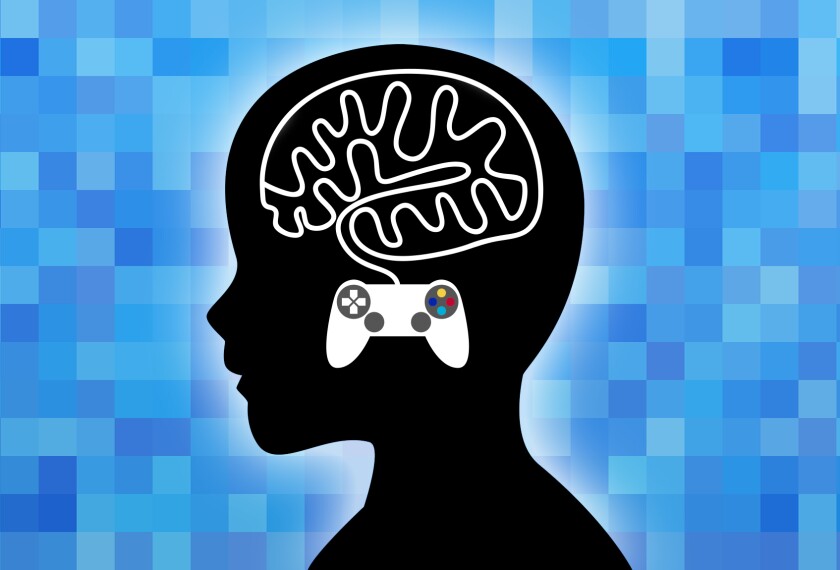A new scientific study suggests that video gaming may be associated with better cognitive performance in children.
Published in the JAMA Network Open journal on Oct. 24, the study of nearly 2,000 children, ages 9 and 10, found that those who reported playing video games for three hours per day or more performed better on cognitive skills tests involving impulse control and working memory compared with those who had never played video games.
The report, funded by the National Institutes of Health and the National Institute of Drug Abuse, comes as researchers have been divided on how video gaming affects the cognitive skills and brain function of children. Most of the behavioral studies on video games have linked gaming to increases in aggressive or unhealthy behavior in children.
“Many parents today are concerned about the effects of video games on their children’s health and development,” said Bader Chaarani, assistant professor of psychiatry at the University of Vermont and the lead author on the study. “As these games continue to proliferate among young people, it is crucial that we better understand both the positive and negative impact that such games may have.”
Researchers at the University of Vermont in Burlington tested two groups of children: those who played video games for at least 21 hours a week—more than the American Academy of Pediatrics’ recommended screen time guidelines—and those who didn’t play at all.
The researchers found that the gamers did better than non-gamers in tests where they had to control impulsive behavior or memorize information. The gamers’ brains also showed more activity in regions associated with attention and memory. And the researchers saw changes in gamers’ brain functions in areas that are involved with vision, attention, problem solving, and memory processing, Chaarani said in an interview.
“One of the hypotheses is that we may be seeing some sort of practice effect, where you would expect someone who is pretty familiar [with certain tasks] with faster reaction times and interpreting different sources of information at the same time,” Chaarani said about why gamers performed better on certain tasks.
Shifting the narrative about the benefits and drawbacks of video games
The research didn’t examine whether the type of video game the kids played affected their cognitive skills, but the researchers said that the genre of the game may have different effects for brain development. Chaarani said he is working on another research project that examines specific genres of video games.
“The results are helpful in shifting the narrative that video games are a waste of time for children and away from the knee-jerk concern that they are linked with aggression or violence,” said Mike Robb, the head of research for Common Sense Media, an organization that reviews and rates how suitable tech tools are for children.
“[But] we should exercise caution about whether children’s performance on the cognitive tasks in the study can be generalized to real-world activities and tasks,” he added.
While the study adds to the growing body of research on the links between gaming and brain development, it doesn’t establish a causal relationship. The findings were inconclusive on whether video games deliver cognitive benefits or if children who are already good at impulse control and memorization seek out video games.
The study also found that children who reported playing video games for three or more hours per day were more likely to report higher mental health and behavioral issues compared with children who played no video games. But because the study only looked at the association between gaming and cognitive skills, the researchers couldn’t conclude whether those behavioral issues “precede and drive” gaming or if gaming resulted in those benefits.







